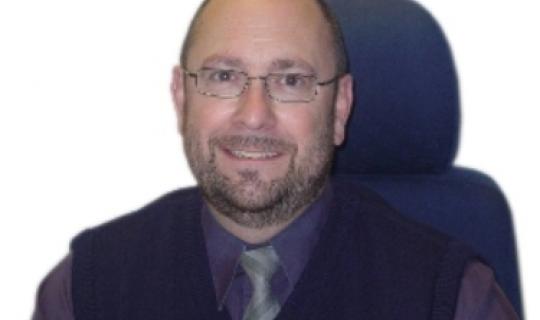Richard's Ramblings
Richard's Ramblings

Here we are and another New Year begins. As it does, I can’t help reflecting back over all the hopes, dreams… and disappointments of New-Years gone by. We often talk of New Year’s resolutions and the hopes that as another new year dawns, we will somehow, somewhere find the strength, the focus the increased will-power needed to achieve things that have been niggling away at us, often for significant periods of time.
Just the other day I was talking to someone and we were commiserating on how often we had tried to lose some weight and how hard it was to even begin, let alone keep off whatever we might have achieved. And that person pointed toward the New Year and suggested there was, for them, a New Year’s resolution coming up…
I suppose it makes sense that a turning point in the year becomes a logical point at which to reassess ourselves and the direction in which our lives are going. And yet I find myself, as the years go by, becoming more and more reticent to make commitments such as New Year’s resolutions. Somehow, the change from one year to the next never seems to offer as much hope for change as it promises, or at least all the common talk of the New Year promises.
Ultimately, change grows from within ourselves. I remember spending some time during my training for ordained ministry in the Uniting Church in Australia working with Aboriginal communities in Northern Australia. In my role, along with others, I sought to come alongside the Aboriginal community and engage in the issues that they wanted to address, that they were seeking to confront.
One of the serious issues for the Aboriginal Communities arose out of binge drinking. I do want to put this into context. At the time (I don’t have current figures) a greater percentage of the Aboriginal community in Australia were total abstainers from alcohol, than was the case within the broader Australian community. So it is within this context that a number of people were expressing their concern about the impact upon their communities of those who binged, often in a very serious manner.
As part of my learning, I was taught that, ultimately, the individuals concerned had to get to a point where they wanted things to change in their lives, and that they were not likely to come to this point until they had hit whatever was their rock-bottom. Now I don’t know if thinking is still the same, but there seems to be at least an element of truth in this. And, I think, we could apply a similar concept to most things in our lives about which we are not happy, and want to change. Until we get to a point where we have nowhere else to turn or go (at least in the context of the issue concerned) we are unlikely to direct the energy required to achieve a change in our lives.
And it is at those points of ‘rock-bottom’ that the help of others becomes most effective. Even with the best will in the world we cannot always resolve all of our issues on our own. We frequently need other people around us. We need their support, encouragement, skills, challenges and love to see us through the failures that will inevitably we part of the change process.
For me, I need something more. I cannot cope without others surrounding me, caring for me, believing in me, but I also need something that gets inside me, that becomes a part of my inner-most being and helps the inner me to change. That’s one of the points in my life that I meet God.
Rev Richard Johnston
January 2015





